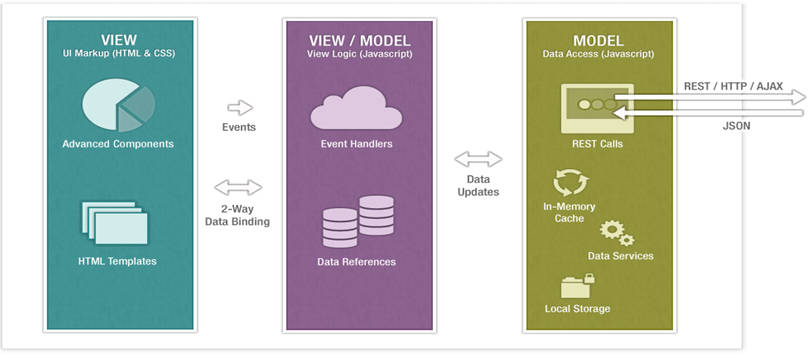| Oracle's New JavaScript Framework |
| Written by Ian Elliot | |||
| Wednesday, 28 October 2015 | |||
|
There is no error in the title, it should say "JavaScript". Since acquiring Sun, Oracle might be associated with Java, but it has come to recognize the important of JavaScript and it has just released JET, a new framework.
Oracle has connections with JavaScript - it owns the trademark on the name for example and this is reason we have to call it ECMAScript. At this year's Oracle OpenWorld it publicly recognized that Java is not the only language: "While Java continues to be the most popular development language in the world, JavaScript has become the second most popular language with a growing developer base utilizing it for both server and client-based functionality." It then announced JavaScript Extension Toolkit, or JET, which it describes as an enterprise quality framework. What is surprising is that it is based on a whole raft of open source libraries that you probably already know: jQuery, jQuery UI, Knockout, Require.js and Hammer. Perhaps this is the next big phase in JavaScript development - the taking of existing toolkits and welding them together to form a mega framework.
The claims for JET are:
It has special features to make it work with Oracle's cloud services but this is reasonable. It is based on the MVVM (Model-View-ViewModel) architecture and Oracle's contribution is to provides the Model which gets the data from the server. The View layer makes use of jQuery UI widgets. Knockout.js implements the ViewModel and specifically two-way data binding between the view and model layers.
JET also provides a range of other services and utilities - events, validation, caching, filtering, browser history management, OAuth 2, module management with RequireJS and so on. You can see what Oracle thinks is important about JET in the following video:
The good news is that there seems to be a lot of documentation and examples to get you started. It is suggested that you might find Oracle's NetBeans a good IDE to work with JET, but you don't have to use it. With all of these well known open source toolkits within JET you might be forgiven for concluding that it too is open source. Not quite or rather not quite yet. You can find in the FAQ the fact that this release is for Oracle Customers only: "This first public release is phase two. Oracle JET is available under a Restricted Use License in this phase. Anyone can download and develop with Oracle JET at this time, however production distribution is restricted to applications that interact with or consume web services from Oracle Cloud Services." A future release is promised to be usable by anyone running any backend they care to run and in due course JET will be made open source. Note however, "The exact date for when Oracle JET will be available as an open source toolkit has not been determined at this time." It is an interesting approach, get your customers using it first and then at some point in the future open source your part of the JET Framework.
More InformationRelated ArticlesFacebook Releases React Native
To be informed about new articles on I Programmer, sign up for our weekly newsletter, subscribe to the RSS feed and follow us on, Twitter, Facebook, Google+ or Linkedin.
Comments
or email your comment to: comments@i-programmer.info
|
|||
| Last Updated ( Saturday, 26 March 2016 ) |




